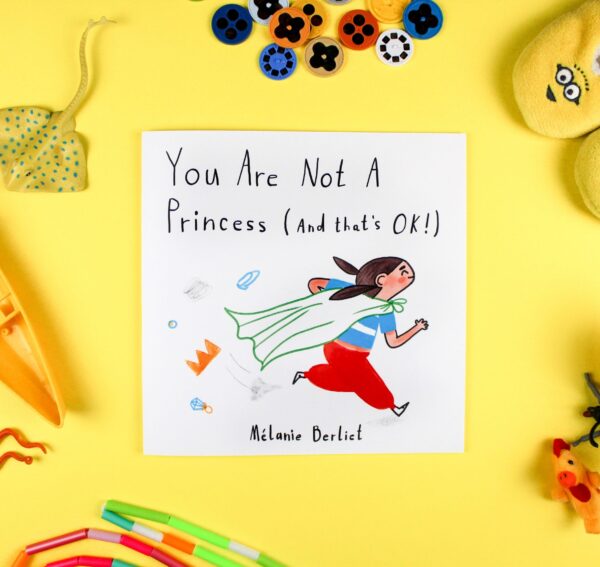Is Book Week missing the mark? Bring back the reading, Felicity Dunn says

Book Week has just finished, and while many educators are congratulating themselves on buying or making a great outfit, or reflecting on how to best acknowledge Book Week next year, many others are heaving a sigh of relief that it’s over.
Felicity Dunn, Founder of Kinder Surveys, fears that the point of Book Week is being “missed entirely” and becoming a competition of creativity, instead of an opportunity to reflect on the joy and value of reading. In this opinion piece, she reflects on the role of parents and educators in reinforcing the importance of books and reading.
With the 2018 Australian Early Development Census showing both language skills and emotional maturity stagnating, it’s time to focus on encouraging families to read with their children more. On the surface, Book Week would appear to be the perfect catalyst to begin this conversation.
Book Week is increasingly being celebrated in schools and early childhood education and care (ECEC) services across the country. It typically involves children dressing up as their favourite character from a book in order to honour the importance and pleasure of reading.
In reality, however, Book Week has been described by some as “not a celebration of children and literature, but a cruel challenge placed upon already time-poor, working parents.”
The paucity of time also manifests when it comes time to participate in the very core element of Book Week – reading. I believe not enough parents regularly read to their children, and this is having a detrimental effect on their learning.
We know that over 1.3 million children are spending time in ECEC settings while one or both parents work. Parents routinely note that finding time to sit down and read with their child or children can be a strain.
Spending time together reading, particularly from the ages of birth to eight, is critical for developing vocabulary, ascribing meaning to language and of course developing a sense of pleasure in reading.
Children love stories, and by engaging with characters in stories, develop empathy; it can also help develop their sense of right and wrong and their problem solving skills.
Reading with a person who loves and cares about them is also a special time to create that sense of feeling secure and loved. So it’s not just about skills for school, reading stories with a trusted and loving carer is also about nurturing and developing the whole child.
How then, can educators share with parents the benefits of sharing a good book, and support children with opportunities for reading in their ECEC environment?
ReadWriteThink offers the following tips about implementing a daily “drop everything and read” (DEAR) time at home or in the ECEC environment. Scheduling a time specific for DEAR each day helps children to know what to expect.
- Pick a comfortable spot where children can look for books – ideally, in open shelves, baskets, or bins – and then sit and read them.
- The more books you can provide, the more you can help children build literacy skills. Try to offer a mix of fiction and non-fiction books, including new books and old favourites.
- Weekly trips to the library can help you offer a rotating selection.
- Allow the child to choose any book, even if it is one he or she has read multiple times. Multiple readings of the same book can be very beneficial because they help the child learn certain words and feel like a successful reader.
- Read the book together. The goal for reading and activities is about 20 to 30 minutes. However, you should only read as long as the child is interested. Younger children have more difficulty maintaining attention for this length of time.
There are many different ways you can share the book together. For example:
- Take a picture walk first. Look through the book and talk about the pictures. Point out any connections you see between the pictures and the child’s life. Talk about what the pictures tell you about the story and ask the child to make predictions.
- Talk about the story while you are reading. Ask questions like “Why do you think that happened?” or “What do you think might happen next?”
- Combine asking questions with making your own comments about the story. Start sentences with phrases like “I notice that…” or “I wonder what…” and encourage the child to do the same thing.
- If there are parts of the book that are repeated or that you know the child can read, encourage him or her to read those parts with you.
- If it seems like the child would rather just be read to, feel free to simply read the book without any interruptions.
- If the child knows a book well enough to read it independently, ask him or her to read the book to you.
- After reading, help the child to further experience the book. This can include talk, drawing and writing, play, or music. For example, you might ask the child to retell you what happened in the story. Or you might have him or her write down what happened in the book or draw a favourite character.
- Some children like to dress up and act out the stories from books; you might act as some of the characters. Or you might make up a song about the book or sing a song that relates to the book. For example, if you read a book about a farm, you might sing the song “Old MacDonald” together, pointing to pictures of different animals in the books while you sing about them.
For more information about the role of reading in early childhood, please see here.
Popular

Quality
Practice
Provider
Research
Workforce
Honouring the quiet magic of early childhood
2025-07-11 09:15:00
by Fiona Alston

Workforce
Policy
Quality
Practice
Provider
Research
The silent oath: Why child protection is personal for every educator
2025-07-17 09:00:31
by Fiona Alston

Practice
Provider
Quality
Research
Embedding cultural safety and responsiveness to strengthen belonging in early childhood education
2025-07-14 13:21:23
by Contributed Content











